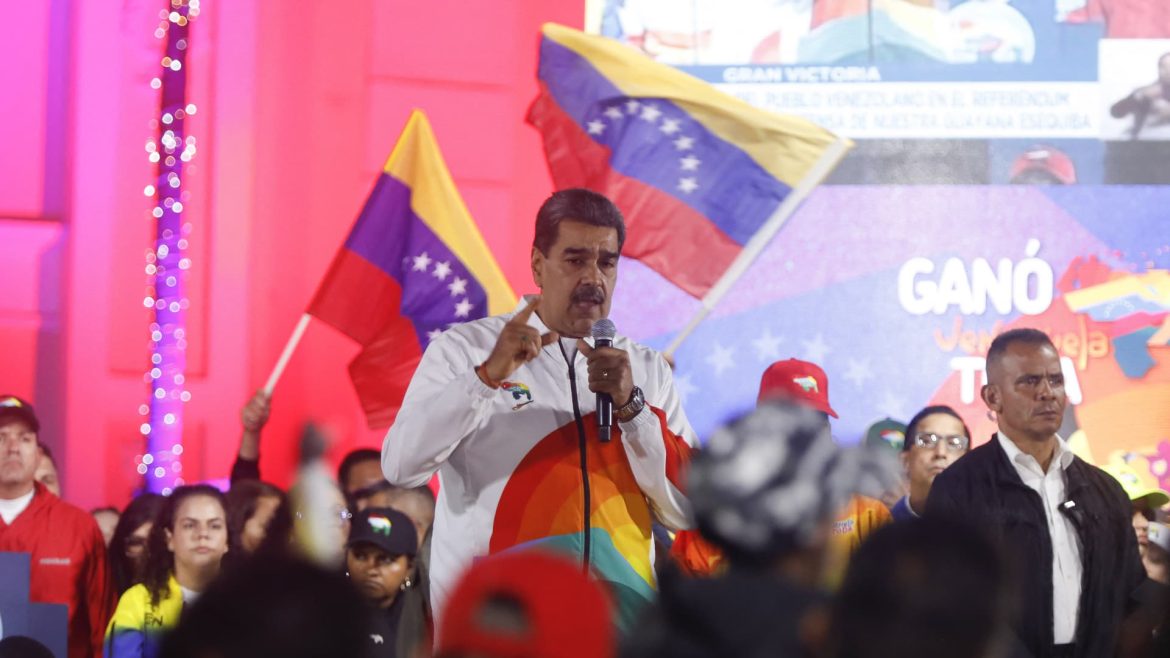Venezuela Claims Sovereignty Over a Large Swathe of Guyana in Referendum
Venezuelans vote in favor of claiming sovereignty over a large part of neighboring oil-rich Guyana in a nonbinding referendum. The vote marks the latest escalation in a long-standing territorial dispute between the two countries.
Venezuela’s National Electoral Council announced that 95 percent of voters approved the nation’s territorial claim on the contested area known as the Essequibo. The area covers 61,600 square miles, equivalent to two-thirds of Guyana, and is rich in enormous oil reserves off its coast. The referendum also included other questions, such as citizenship rights in the region, and whether to reject the International Court of Justice’s jurisdiction over the territorial dispute between both countries.
Historical Context of the Dispute
The dispute over Essequibo is more than a century old. In 1899, an international arbitral tribunal awarded the territory to Britain when Guyana was still under colonial rule. Venezuela has actively disputed this, and President Nicolas Maduro has accused Guyana, the US, and oil firms of robbing Venezuela of its territory through “legal colonialism.” Meanwhile, Guyana maintains that the accord is legal and binding and previously sought the International Court of Justice to rule it as such in 2018.
Reluctant Reaction from International Markets
The planned referendum has not yet prompted a significant reaction from international oil markets as there has been no physical supply disruption. Eurasia Group’s Director, Henning Gloystein, stated it is unlikely to happen in the near future. Meanwhile, the US imposed oil export sanctions against Venezuela in 2019, and Venezuela’s actions are unlikely to help it improve relations with the US, which it needs to improve its oil production, according to Gloystein.
International Response and Future Implications
The International Court of Justice ordered Venezuela to refrain from making any move that would change Guyana’s control over Essequibo. Furthermore, experts believe that the US will come to Guyana’s defense if Venezuela attacks the country, comparing it to Russia’s actions in Ukraine.
The situation remains tense as both Venezuela and Guyana remain critical oil hotspots in the region. Venezuela is the 10th largest producer in OPEC, and the Stabroek Block in Guyanese waters is estimated to hold about 11 billion barrels of oil.
In the meantime, the world watches closely as this latest move by Venezuela may have far-reaching implications for the region’s oil and geopolitical landscape. President Maduro’s government is also facing significant international pressure to allow free and fair elections in 2024. The situation remains fraught with tension and uncertainty.

I have been featured in numerous publications, both online and offline, and am a regular speaker at industry events. I am also the founder of Crypto University, an online educational platform that helps people learn about cryptocurrencies and blockchain technology. In addition to my writing and teaching career, I am also an active investor in the cryptocurrency space. I have made investments in some of the leading projects in the space, and my portfolio has outperformed the market by a wide margin
